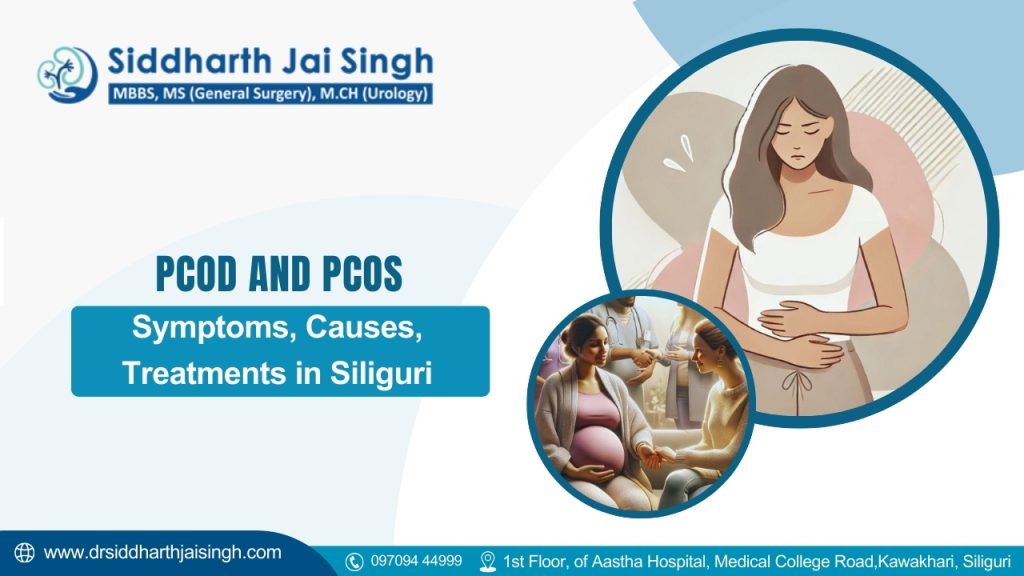Many people confuse urologists and nephrologists because both work with the urinary system and kidneys. However, they specialize in different areas. Understanding these differences is key to getting the right care. This guide will explain how they differ and help you choose the right specialist for your needs. If you need urological treatment in Siliguri, knowing which specialist to see can make a big difference. What is a Urologist? A urologist is a doctor who specializes in diagnosing and treating problems with the urinary tract and male reproductive system. They handle a variety of issues, including urinary infections, kidney stones, bladder problems, and prostate conditions. Their expertise helps manage conditions that affect both men and women, ensuring comprehensive care for urinary and reproductive health. You must see a urologist if you have: Persistent urinary tract infections (UTIs) Painful or frequent urination Kidney stones causing discomfort or complications Bladder issues such as incontinence or an overactive bladder Prostate problems like difficulty urinating or prostate enlargement Male infertility issues affecting your ability to father a child Tests Performed By Urologists: Physical Exam: The urologist asks about your health, medical history, and current medications. DRE (Digital Rectal Exam): A test for men where the doctor checks for problems with the prostate gland. Blood Tests: Used to find signs of cancer or other diseases, including tests for prostate health, testosterone levels, and kidney function. Urine Tests: If blood tests aren’t enough, urine tests help check for infections or other issues. This includes urine cultures, urinalysis, and 24-hour urine tests. Seminogram: A test to check sperm quality for men with fertility problems. Imaging Tests: Includes CT scans, ultrasounds, and X-rays to look for problems in the urinary and reproductive systems. What is a Nephrologist? A nephrologist is a doctor who specializes in diagnosing and treating kidney problems. They focus on managing diseases that affect the kidneys, which are important for filtering waste, balancing fluids, and regulating electrolytes in the body. Nephrologists handle a variety of kidney issues, including chronic kidney disease, kidney failure, kidney stones, and high blood pressure linked to kidney problems. They use non-surgical methods to treat these conditions, often working to prevent kidney damage and manage long-term kidney health. You must see a nephrologist if you have: Chronic Kidney Disease (CKD) symptoms Severe kidney failure needing treatment Frequent or painful kidney stones High blood pressure hard to control Protein or blood detected in urine Diabetes affecting your kidney function Persistent or severe kidney infections Test Performed By Nephrologists? Kidney Function Tests: These tests check if your kidneys are working properly. They include blood and urine tests like serum creatinine, GFR, eGFR, and BUN. Kidney Biopsy: This involves taking a small piece of kidney tissue to diagnose kidney problems. Imaging Tests: Tests such as CT scans, ultrasounds, and X-rays are used to get pictures of the kidneys and find any issues. Difference Between Urologists and Nephrologists Urologists and nephrologists both work with kidney-related issues, but have different roles. Nephrologists specialize in treating kidney diseases like chronic kidney disease and high blood pressure related to the kidneys. They focus on managing these conditions with medications and other non-surgical methods. Here is ten tips to choose best kidney specialist in siliguri. Urologists, on the other hand, handle problems with the urinary tract and male reproductive system. They treat issues like urinary tract infections, kidney stones, and prostate problems, and they often perform surgeries or other procedures to address these conditions. Aspect Urologist Nephrologist Focus Area Urinary tract system and male reproductive organs Kidneys and their function Specialization Treats urinary tract issues in both men and women, and male reproductive health Specializes in kidney diseases and conditions Conditions Treated Kidney stones, urinary tract infections (UTIs), bladder issues, prostate problems, male infertility, erectile dysfunction Chronic kidney disease, kidney failure, hypertension related to kidney issues, glomerulonephritis, dialysis management Surgical Expertise Performs surgeries related to the urinary tract and male reproductive organs Typically does not perform surgeries; focuses on medical treatment Diagnostic Tools Uses imaging (ultrasound, CT scan), cystoscopy, and surgical tools for diagnosis and treatment Uses blood tests, urine tests, kidney biopsies, and imaging studies for diagnosis Common Procedures Cystoscopy, lithotripsy, prostate surgery, bladder surgery, vasectomy Management of dialysis, prescribing medications for kidney diseases, kidney biopsy Patient Demographics Both men and women, with a focus on urinary tract and male reproductive health Primarily deals with patients suffering from kidney-related issues Referrals May refer to nephrologists for kidney-specific issues May refer to urologists for surgical interventions or male reproductive health issues Why Choose Dr. Siddharth Jai Singh for your Kidney and Urological treatment in Siliguri Choosing Dr. Siddharth Jai Singh for your kidney and urological treatment in Siliguri means getting expert care with a personal touch. He has years of experience and deep knowledge in the field, ensuring accurate diagnoses and effective treatments for various conditions. Dr. Singh focuses on each patient’s needs, offering personalized treatment plans and clear, caring communication. His patients often praise him for his dedication and successful results. Choosing Dr. Singh means you get expert care with modern technology and a compassionate approach. 10+ Years of Experience Advance Medical Treatment Personalized Treatment Multidisciplinary Approach 5k+ Successful Cases General & Laparoscopic Surgery Critical Care Management Compassionate Care


